Opinion
Lift ‘Lockdown’ – Open economic activities

by Dr. Pradeep Kariyawasam
Former Chief Medical Officer of Health, Colombo
Most citizens will wonder why I am asking for the lifting of the so-called ‘Lockdown’ now when Health Authorities continue to reiterate that we are not yet out of the woods. Health is a state of complete physical, mental and social wellbeing, and not merely the absence of disease or infirmity, says the World Health Organization (WHO). Even during the current COVID-19 pandemic, while we are striving to eliminate this dreaded disease, it is a valid statement: It is ‘Health for all’ and not only for a group of people in our society, divided by religion, race, caste and societal status.
I had mentioned in a previous letter that a week-long island-wide curfew would have met the same target we have achieved with this type of Lockdown, during the past month or so. This Lockdown will not severely affect government servants, as most of them are at home, and every month, whether they work or not, their salary gets deposited in their bank accounts. In the private sector, a large number who worked in smaller enterprises have lost their jobs in the last two years. Similarly, a large number of vendors and small business holders have lost their income and closed down their businesses or are gasping for breath after 18 months of agony, trying to survive. What about the daily wage earners? Most of them may not be recipients of any social benefit and may not have any savings; to them, surviving is out of the question if this lockdown continues, as they are the people who suffer most from these closures. Some have resorted to begging by the roadside, others are going from house to house asking whether there are any household chores they could do for a few hundred rupees; but who wants to invite anyone to their homes these days!
I believe that except for the rich and upper-middle-class, all the others in this country have suffered a lot during the last one and half years, and they make up the vast majority of this country. Consequently, the physical, social and mental wellbeing of Lankans has suffered immensely, and needless to say, they are sick if we follow the definition of the WHO, and in that case, the vast majority in this country are sick!
Even with this kind of a mild lockdown, which looks like it is only affecting the lower rungs of our society, the number of infected and deaths due to COVID-19 goes down with each passing day. The rich and powerful carried out their activities without any hindrance, evident by the number of vehicles on the streets. Some went on vacation, even crossing provincial borders without being stopped, others went to Nuwara-Eliya or Kataragama, or booked hotels to stay there during this period. Indeed, they would not have carried the disease to those areas or brought the disease to Colombo, but the message they give to the ordinary citizen leaves much to be desired. It is due to this kind of behaviour that ordinary citizens in urban areas also roamed the streets during the lockdown, as it was very difficult to be crammed inside small houses or mid-level apartments, where five to six people live in 400 to 500 square feet. Therefore, a lockdown is practically impossible to implement in areas with economic constraints, and the best we could do is to concentrate on such areas when taking preventive action.
Alas, the old tried and tested preventive measure of ensuring community participation in disease control is a thing in the past in Colombo. The breakdown in communication between such communities and the health authorities is alarming, which was the reason for more than 100 deaths at home in Colombo this year. The real numbers should be available with the Epidemiology Unit, but unfortunately, information is not forthcoming and health authorities don’t seem to care. Civil societies and NGOs that took part in these activities physically are not to be seen, and that has contributed immensely to the failure of preventive measures. I have wondered why only tail end COVID-19 prevention activities, such as PCR and antigen testing and quarantining, are being focused on, while no real effort is made to prevent the spread of the disease by carrying out large scale awareness campaigns in vulnerable areas, imposing strict lockdown conditions in areas where new variant outbreaks take place; as it happened in Dematagoda where the spread of the Delta variant started; vaccinating people in vulnerable areas first, looking after their daily needs and putting in place a system to provide emergency relief to such areas.
We could have then stopped the Delta variant from spreading into other areas, and to other parts of the country. I do not understand it when health officials in Colombo say 50 percent of PCR samples are positive for the Delta variant and at the same time say that they have contained the spread of the disease. It is a pity that Colombo city so far has no qualified epidemiologist in their ranks, to analyze data, make proper decisions, and implement prevention and control measures.
The hit, the economy of the country took, is not reversible for a long time to come. We have to get economic activities running again from next week without waiting any longer if we don’t want to hit rock bottom. Factories, shops, bakeries, malls and garages should open under strict health guidelines, and the country should move forward again. How should we do that? Wearing a mask all the time, hand washing, maintaining social distance, not stepping out if one has at least one symptom, are the key to success. For this, every institution and each individual should contribute.
When considering the public service, only 20 percent of staff members should be allowed to report to work on a single day during the next few months, but top officials should report to work daily as otherwise, the system cannot function. This will ensure that at least one day a week everyone will be working. They should be advised to work longer hours on such days and to cover all priority work they are usually assigned. Once they report to work they will have to follow strict health guidelines, and government offices have to issue health protocols and implement the same.
Private sector organisations should also stick to the 20 percent quota of office staff, but factories and stores should be allowed to operate with the full team under strict health protocols. These protocols may vary depending on the functions of each organisation, nature of work carried out and the number of workers. Private transport should be arranged for all staff members, including labourers. This will not be an issue as there must be enough idling school vans due to school closure. Public transport should allocate only 50 percent of seats to passengers, at least for the next three months; and if the number of those who test positive further reduces to less than 1,000 per day, passengers may be accommodated according to the number of seats available, but no more. Shops and small-time trade should be allowed to open with minimum staff, and customers allowed inside should correspond to the floor area; at least a minimum of four to five square metres should be allocated per each customer entering such establishments.
The tourism sector should be allowed to function by getting tourists to travel in bubbles without hindrance and even by restricting access, to destinations of tourism value, for locals for some time. This is a very important measure to improve our economy. The testing facilities at the airport should be improved for locals as well as tourists, to allow the release of PCR test reports before they leave the airport.
No demonstrations, protests, gatherings of more than five people in public place should be allowed for at least the next three months and may be controlled using even emergency regulations. Vaccination programmes should be continued, and perhaps vaccinators can work in shifts to provide this service late into the night. A mobile vaccination drive is desirable in certain areas, rather than getting people to travel long distances and then wait in line. The excellent service rendered by the tri-forces and the police during the vaccination programmes in Colombo must be commended. All children above 12 should be vaccinated with a recognized vaccine, and schools should be reopened at least by November this year. PCR and antigen testing should be done only on those who display symptoms and their contacts, as I believe that carrying out random tests can only give us an estimation of the people who have contracted the disease, and is not an accurate sample of the total population. To achieve the latter, we will have to test all the people in the country within a day or two, but that is not practical. Consequently, random testing is a waste of money, time and resources.
The key to success in this endeavour is discipline. All authorities concerned must ensure that health protocols are followed, the number of meetings and gatherings are kept to a minimum, such activities are not allowed in public places and economic activities are carried out following maximum safety measures. The public must exercise individual responsibility in getting vaccinated not only for the sake of their safety but also for the safety of others, limiting unnecessary travel, looking out for neighbours in their hour of need and helping health personnel to carry out their duties.
There had been complaints against officials about pilfering vaccines and vaccinating for money, charging commissions for PCR testing, allocating certain hotels only for quarantined persons, and lately about playing favourites with funeral parlours when releasing bodies for cremation. These allegations should be inquired into, as there can’t be smoke without fire. We must encourage people to have faith in the ongoing activities, as otherwise, they will also not fall in line. The Delta variant will not be around forever. It will subside but come back one day in another form or variant. However, we should be better prepared to face it next time, by having in place preventive measures and getting all concerned to participate in this endeavour.
Opinion
Thoughts for Unduvap Poya
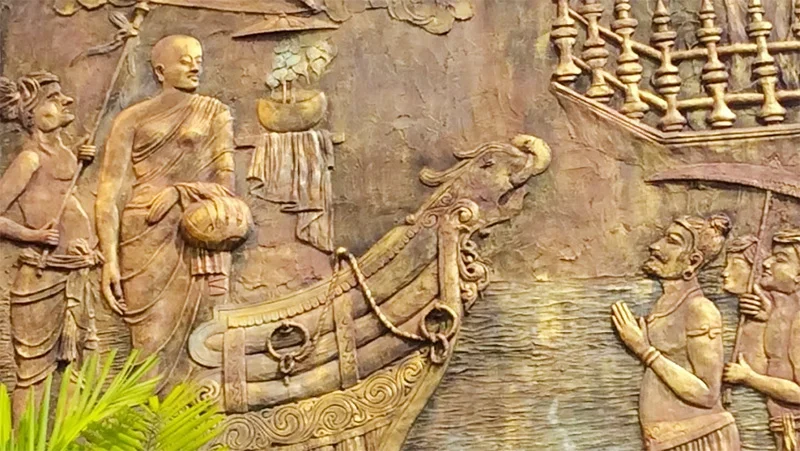
Unduvap Poya, which falls today, has great historical significance for Sri Lanka, as several important events occurred on that day but before looking into these, as the occasion demands, our first thought should be about impermanence. One of the cornerstones of Buddha’s teachings is impermanence and there is no better time to ponder over it than now, as the unfolding events of the unprecedented natural disaster exemplify it. Who would have imagined, even a few days ago, the scenes of total devastation we are witnessing now; vast swathes of the country under floodwaters due to torrential rain, multitudes of earth slips burying alive entire families with their hard-built properties and closing multiple trunk roads bringing the country to a virtual standstill. The best of human kindness is also amply demonstrated as many risk their own lives to help those in distress.
In the struggle of life, we are attached and accumulate many things, wanted and unwanted, including wealth overlooking the fact that all this could disappear in a flash, as happened to an unfortunate few during this calamitous time. Even the survivors, though they are happy that they survived, are left with anxiety, apprehension, and sorrow, all of which is due to attachment. We are attached to things because we fail to realise the importance of impermanence. If we do, we would be less attached and less affected. Realisation of the impermanent nature of everything is the first step towards ultimate detachment.
It was on a day like this that Arahant Bhikkhuni Sanghamitta arrived in Lanka Deepa bringing with her a sapling of the Sri Maha Bodhi tree under which Prince Siddhartha attained Enlightenment. She was sent by her father Emperor Ashoka, at the request of Arahant Mahinda who had arrived earlier and established Buddhism formally under the royal patronage of King Devanampiyatissa. With the very successful establishment of Bhikkhu Sasana, as there was a strong clamour for the establishment of Bhikkhuni Sasana as well, Arahant Mahinda requested his father to send his sister which was agreed to by Emperor Ashoka, though reluctantly as he would be losing two of his children. In fact, both served Lanka Deepa till their death, never returning to the country of their birth. Though Arahant Sanghamitta’s main mission was otherwise, her bringing a sapling of the Bo tree has left an indelible imprint in the annals of our history.
According to chronicles, King Devanampiyatissa planted the Bo sapling in Mahamevnawa Park in Anuradhapura in 288 BCE, which continues to thrive, making it the oldest living human planted tree in the world with a known planting date. It is a treasure that needs to be respected and protected at all costs. However, not so long ago it was nearly destroyed by the idiocy of worshippers who poured milk on the roots. Devotion clouding reality, they overlooked the fact that a tree needs water, not milk!
A monk developed a new practice of Bodhi Puja, which even today attracts droves of devotees and has become a ritual. This would have been the last thing the Buddha wanted! He expressed gratitude by gazing at the tree, which gave him shelter during the most crucial of times, for a week but did not want his followers to go around worshipping similar trees growing all over. Instead of following the path the Buddha laid for us, we seem keen on inventing new rituals to indulge in!
Arahant Sanghamitta achieved her prime objective by establishing the Bhikkhuni Sasana which thrived for nearly 1200 years till it fell into decline with the fall of the Anuradhapura kingdom. Unfortunately, during the Polonnaruwa period that followed the influence of Hinduism over Buddhism increased and some of the Buddhist values like equality of sexes and anti-casteism were lost. Subsequently, even the Bhikkhu Sasana went into decline. Higher ordination for Bhikkhus was re-established in 1753 CE with the visit of Upali Maha Thera from Siam which formed the basis of Siam Maha Nikaya. Upali Maha Thero is also credited with reorganising Kandy Esala Perahera to be the annual Procession of the Temple of Tooth, which was previously centred around the worship of deities, by getting a royal decree: “Henceforth Gods and men are to follow the Buddha”
In 1764 CE, Siyam Nikaya imposed a ‘Govigama and Radala’ exclusivity, disregarding a fundamental tenet of the Buddha, apparently in response to an order from the King! Fortunately, Buddhism was saved from the idiocy of Siyam Nikaya by the formation of Amarapura Nikaya in 1800 CE and Ramanna Nikaya in 1864 CE, higher ordination for both obtained from Burma. None of these Niakya’s showed any interest in the re-establishment of Bhikkhuni Sasana which was left to a band of interested and determined ladies.
My thoughts and admiration, on the day Bhikkhuni Sasana was originally established, go to these pioneers whose determination knew no bounds. They overcame enormous difficulties and obtained higher ordination from South Korea initially. Fortunately, Ven. Inamaluwe Sri Sumangala Thero, Maha Nayaka of Rangiri Dambulla Chapter of Siyam Maha Nikaya started offering higher ordination to Bhikkhunis in 1998 but state recognition became a sore point. When Venerable Welimada Dhammadinna Bhikkhuni was denied official recognition as a Bhikkhuni on her national identity card she filed action, with the support of Ven. Inamaluwe Sri Sumangala Thero. In a landmark majority judgement delivered on 16 June, the Supreme Court ruled that the fundamental rights of Ven. Dhammadinna were breached and also Bhikkhuni Sasana was re-established in Sri Lanka. As this judgement did not receive wide publicity, I wrote a piece titled “Buddhism, Bhikkhus and Bhikkhunis” (The Island, 10 July 2025) and my wish for this Unduvap Poya is what I stated therein:
“The landmark legal battle won by Bhikkhunis is a victory for common sense more than anything else. I hope it will help Bhikkhuni Sasana flourish in Sri Lanka. The number of devotees inviting Bhikkhunis to religious functions is increasing. May Bhikkhunis receive the recognition they richly deserve.” May there be a rapid return to normalcy from the current tragic situation.”
by Dr Upul Wijayawardhana
Opinion
Royal Over Eighties
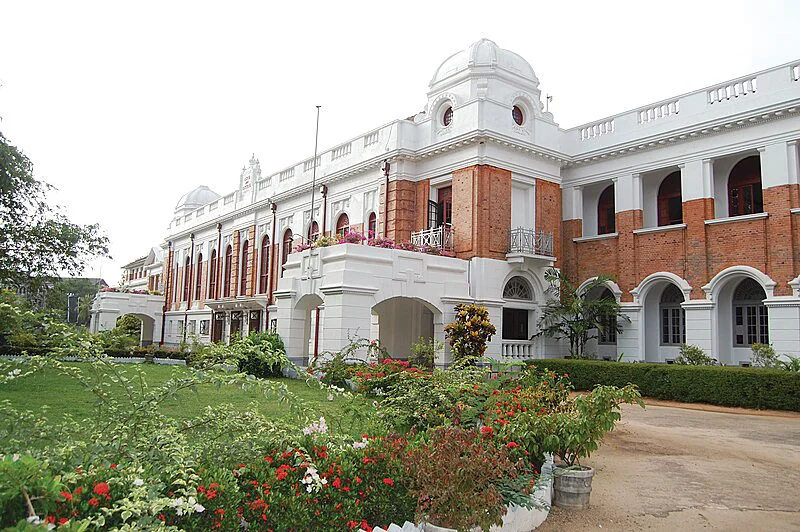
The gathering was actually of ‘Over Seventies’ but those of my generation present were mostly of the late eighties.
Even of them I shall mention only those whom I know at least by name. But, first, to those few of my years and older with whom speech was possible.
First among them, in more sense than one, was Nihal Seneviratne, at ninety-one probably the oldest present. There is no truth to the story that his state of crisp well-being is attributable to the consumption of gul-bunis in his school days. It is traceable rather to a life well lived. His practice of regular walks around the house and along the lane on which he lives may have contributed to his erect posture. As also to the total absence of a walking stick, a helper, or any other form of assistance as he walked into the Janaki hotel where this gathering took place.
Referencing the published accounts of his several decades-long service in Parliament as head of its administration, it would be moot to recall that his close friend and fellow lawyer, J E D Gooneratne, teased him in the following terms: “You will be a bloody clerk all your life”. He did join service as Second Assistant to the Clerk to the House and moved up, but the Clerk became the Secretary General. Regardless of such matters of nomenclature, it could be said that Nihal Seneviratne ran the show.
Others present included Dr. Ranjith de Silva, Surgeon, who was our cricket Captain and, to the best of my knowledge, has the distinction of never engaging in private practice.
The range of Dr. K L (Lochana) Gunaratne’s interests and his accomplishments within each are indeed remarkable. I would think that somebody who’d received his initial training at the AA School of Architecture in London would continue to have architecture as the foundation of his likes /dislikes. Such would also provide a road map to other pursuits whether immediately related to that field or not. That is evident in the leadership roles he has played in the National Academy of Sciences and the Institute of Town Planners among others. As I recall he has also addressed issues related to the Panadura Vadaya.
My memories of D L Seneviratne at school were associated with tennis. As happens, D L had launched his gift for writing over three decades ago with a history of tennis in Sri Lanka (1991). That is a game with which my acquaintance is limited to sending a couple of serves past his ear (not ‘tossing the ball across’ as he asked me to) while Jothilingam, long much missed, waited for his team mates to come for practices. It is a game at which my father spent much time both at the Railway sports club and at our home-town club. (By some kind of chance, I recovered just a week ago the ‘Fred de Saram Challenge Cup’ which, on his winning the Singles for the third time, Koo de Saram came over to the Kandana Club to hand over to him for keeps. They played an exhibition match which father won). D L would know whether or not, as I have heard, in an exhibition match in Colombo, Koo defeated Frank Sedgman, who was on his triumphant return home to Oz after he had won the Wimbledon tournament in London.
I had no idea that D L has written any books till my son brought home the one on the early history of Royal under Marsh and Boake, (both long-bearded young men in their twenties).
It includes a rich assortment of photographs of great value to those who are interested in the history of the Anglican segment of Christian missionary activity here in the context of its contribution to secondary school education. Among them is one of the school as it appeared on moving to Thurstan road from Mutwal. It has been extracted from the History of Royal, 1931, done by students (among whom a relative, Palitha Weeraman, had played a significant role).
As D L shows, (in contra-distinction to the Catholic schools) the CMS had engaged in a largely secular practice. Royal remained so through our time – when one could walk into the examination room and answer questions framed to test one’s knowledge of Christianity, Buddhism, Hinduism and Islam; a knowledge derived mostly from the lectures delivered by an Old Boy at general assembly on Friday plus readings from the Dhammapada, the Bhagavad Gita, the St. John’s version of the Bible or the Koran recited by a student at senior assembly on Tuesday / Thursday.
D L’s history of Royal College had followed in 2006.
His writing is so rich in detail, so precise in formulation, that I would consider this brief note a simple prompt towards a publisher bringing out new editions at different levels of cost.
It was also a pleasure to meet Senaka Amarasinghe, as yet flaunting his Emperor profile, and among the principal organisers of this event.
The encounter with I S de Silva, distinguished attorney, who was on Galle road close to Janaki lane, where I lived then was indeed welcome. As was that with Upali Mendis, who carried out cataract surgery on my mother oh so long ago when he was head of the Eye Hospital. His older brother, L P, was probably the most gifted student in chemistry in our time.
Most serendipitous perhaps was meeting a son of one of our most popular teachers from the 1950s, – Connor Rajaratnam. His cons were a caution.
by Gamini Seneviratne
Opinion
“Regulatory Impact Assessment – Not a bureaucratic formality but essentially an advocacy tool for smarter governance”: A response
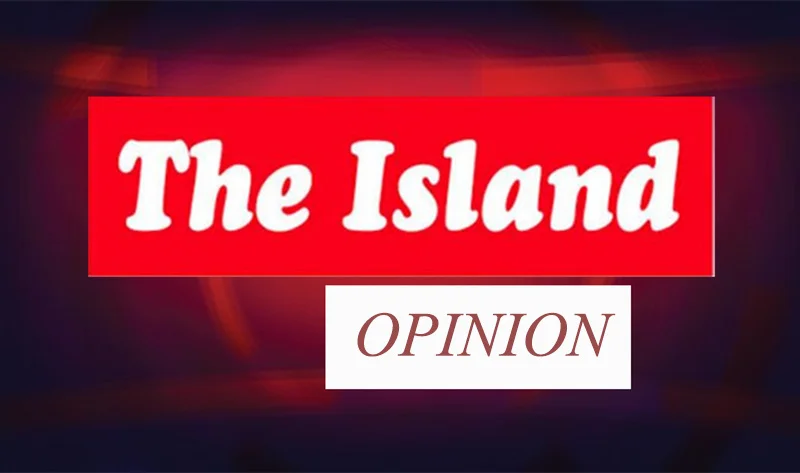
Having meticulously read and re-read the above article published in the opinion page of The Island on the 27 Nov, I hasten to make a critical review on the far-reaching proposal made by the co-authors, namely Professor Theekshana Suraweera, Chairman of the Sri Lanka Standards Institution and Dr. Prabath.C.Abeysiriwardana, Director of Ministry of Science and Technology
The aforesaid article provides a timely and compelling critique of Sri Lanka’s long-standing gaps in evidence-based policymaking and argues persuasively for the institutional adoption of Regulatory Impact Assessment (RIA). In a context where policy missteps have led to severe economic and social consequences, the article functions as an essential wake-up call—highlighting RIA not as a bureaucratic formality but as a foundational tool for smarter governance.
One of the article’s strongest contributions is its clear explanation of how regulatory processes currently function in Sri Lanka: legislation is drafted with narrow legal scrutiny focused mainly on constitutional compliance, with little or no structured assessment of economic, social, cultural, or environmental impacts. The author strengthens this argument with well-chosen examples—the sudden ban on chemical fertilizer imports and the consequences of the 1956 Official Language Act—demonstrating how untested regulation can have far-reaching negative outcomes. These cases effectively illustrate the dangers of ad hoc policymaking and underscore the need for a formal review mechanism.
The article also succeeds in demystifying RIA by outlining its core steps—problem definition, option analysis, impact assessment, stakeholder consultation, and post-implementation review. This breakdown makes it clear that RIA is not merely a Western ideal but a practical, structured, and replicable process that could greatly improve policymaking in Sri Lanka. The references to international best practices (such as the role of OIRA in the United States) lend credibility and global context, showing that RIA is not experimental but an established standard in advanced governance systems.
However, the article could have further strengthened its critique by addressing the political economy of reform: the structural incentives, institutional resistance, and political culture that have historically obstructed such tools in Sri Lanka. While the challenges of data availability, quantification, and political pressure are briefly mentioned, a deeper analysis of why evidence-based policymaking has not taken root—and how to overcome these systemic barriers—would have offered greater practical value.
Another potential enhancement would be the inclusion of local micro-level examples where smaller-scale regulations backfired due to insufficient appraisal. This would help illustrate that the problem is not limited to headline-making policy failures but affects governance at every level.
Despite these minor limitations, the article is highly effective as an advocacy piece. It makes a strong case that RIA could transform Sri Lanka’s regulatory landscape by institutionalizing foresight, transparency, and accountability. Its emphasis on aligning RIA with ongoing national initiatives—particularly the strengthening of the National Quality Infrastructure—demonstrates both pragmatism and strategic vision.
At a time, when Chairmen of statutory bodies appointed by the NPP government play a passive voice, the candid opinion expressed by the CEO of SLSI on the necessity of a Regulatory Impact Assessment is an important and insightful contribution. It highlights a critical missing link in Sri Lanka’s policy environment and provides a clear call to action. If widely circulated and taken seriously by policymakers, academics, and civil society, it could indeed become the eye-opener needed to push Sri Lanka toward more rational, responsible, and future-ready governance.
J. A. A. S. Ranasinghe,
Productivity Specialty and Management Consultant
(rathula49@gmail.com)
-
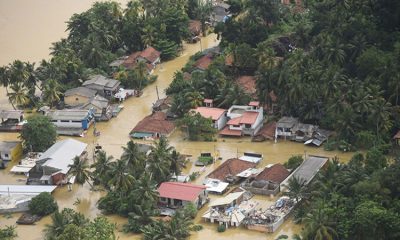
 News6 days ago
News6 days agoWeather disasters: Sri Lanka flooded by policy blunders, weak enforcement and environmental crime – Climate Expert
-
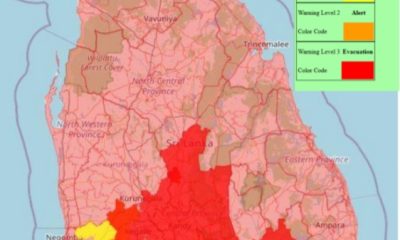
 Latest News6 days ago
Latest News6 days agoLevel I landslide RED warnings issued to the districts of Badulla, Colombo, Gampaha, Kalutara, Kandy, Kegalle, Kurnegala, Natale, Monaragala, Nuwara Eliya and Ratnapura
-
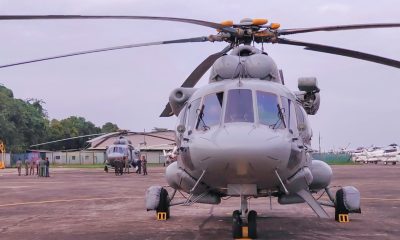
 Latest News7 days ago
Latest News7 days agoINS VIKRANT deploys helicopters for disaster relief operations
-
News3 days ago
Lunuwila tragedy not caused by those videoing Bell 212: SLAF
-
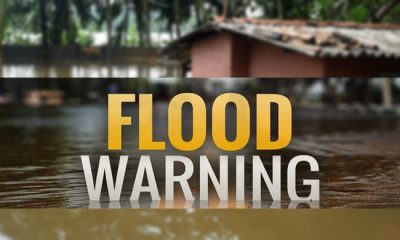
 Latest News7 days ago
Latest News7 days agoDepartment of Irrigation issues Critical flood warning to the Kelani river basin
-

 Latest News4 days ago
Latest News4 days agoLevel III landslide early warnings issued to the districts of Badulla, Kandy, Kegalle, Kurunegala, Matale and Nuwara-Eliya
-

 News2 days ago
News2 days agoLevel III landslide early warning continue to be in force in the districts of Kandy, Kegalle, Kurunegala and Matale
-

 Editorial7 days ago
Editorial7 days agoNeeded: Action not rhetoric













